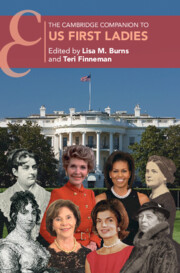3 results

The Cambridge Companion to US First Ladies
-
- Published online:
- 02 January 2025
- Print publication:
- 06 February 2025
4 - The Interagency Foreign Policy Process
-
-
- Book:
- Diplomatic Tradecraft
- Published online:
- 15 March 2024
- Print publication:
- 28 March 2024, pp 78-99
-
- Chapter
- Export citation
2 - Amy Beach and the Women’s Club Movement
- from Part I - Historical Context
-
-
- Book:
- The Cambridge Companion to Amy Beach
- Published online:
- 19 October 2023
- Print publication:
- 02 November 2023, pp 22-37
-
- Chapter
- Export citation

